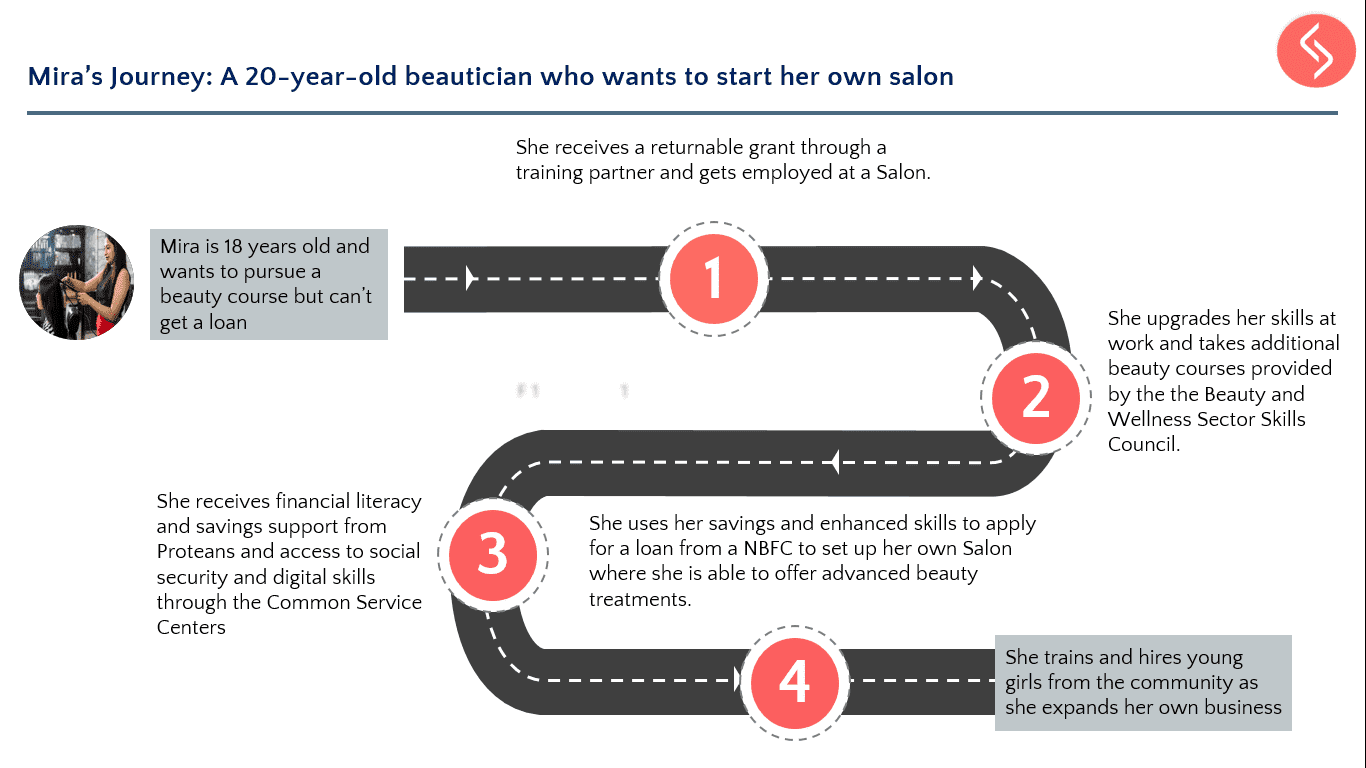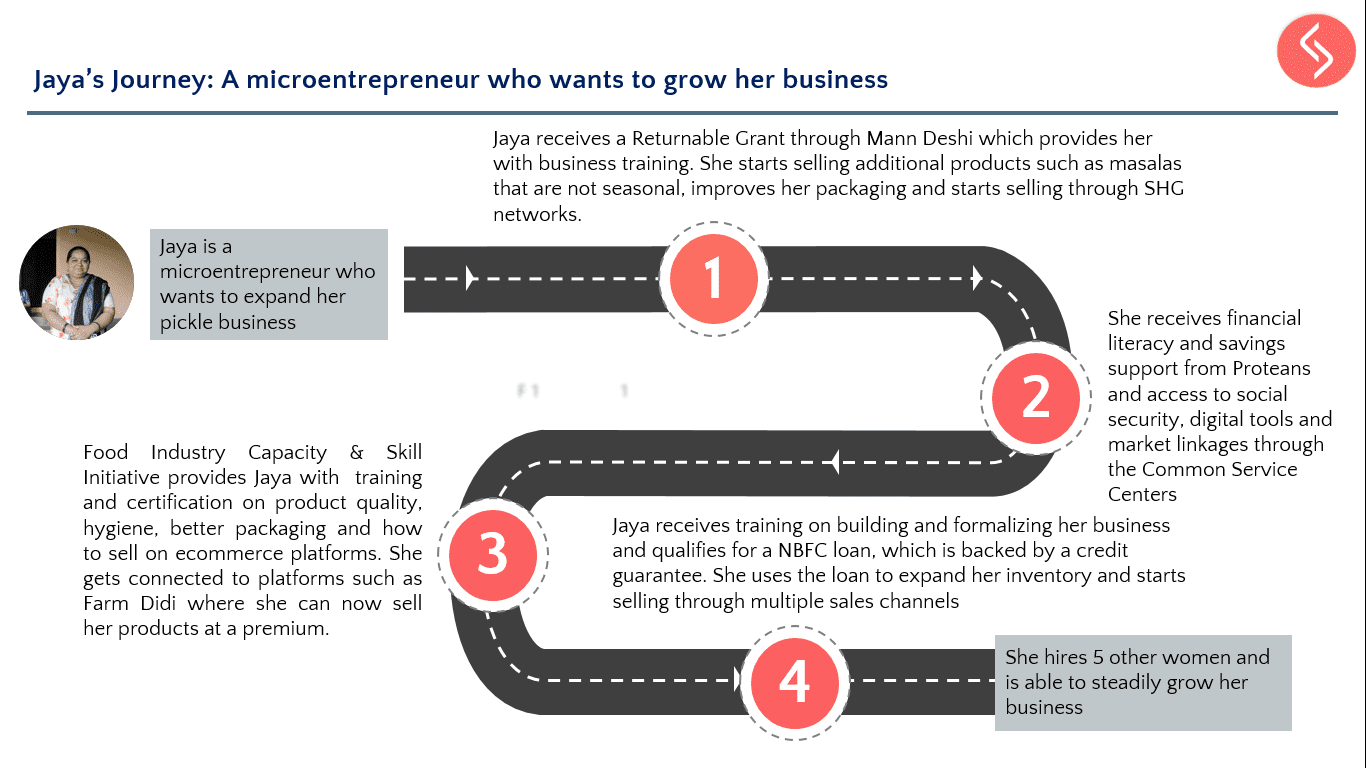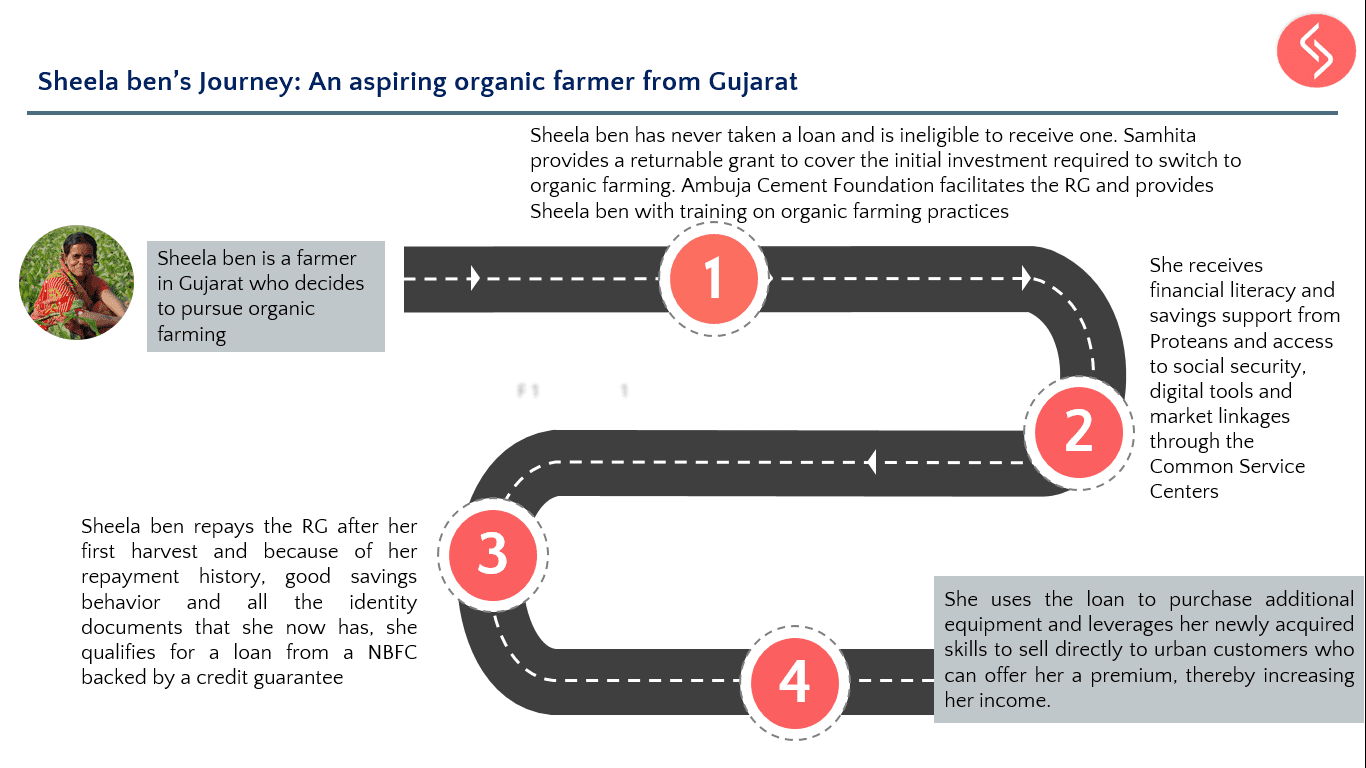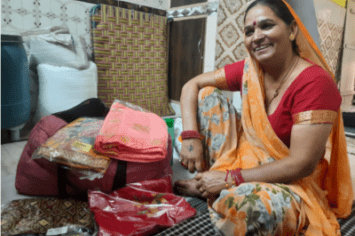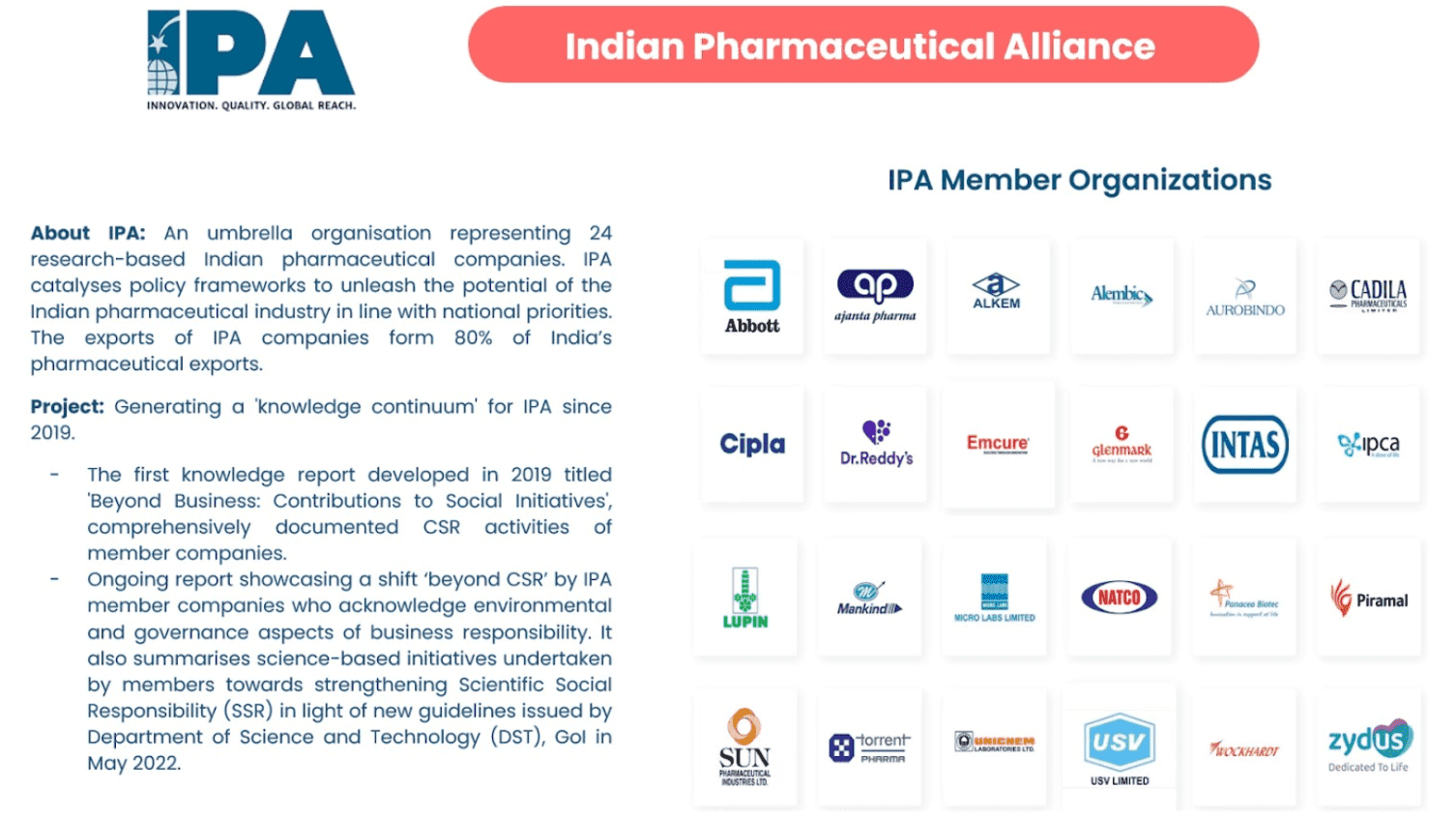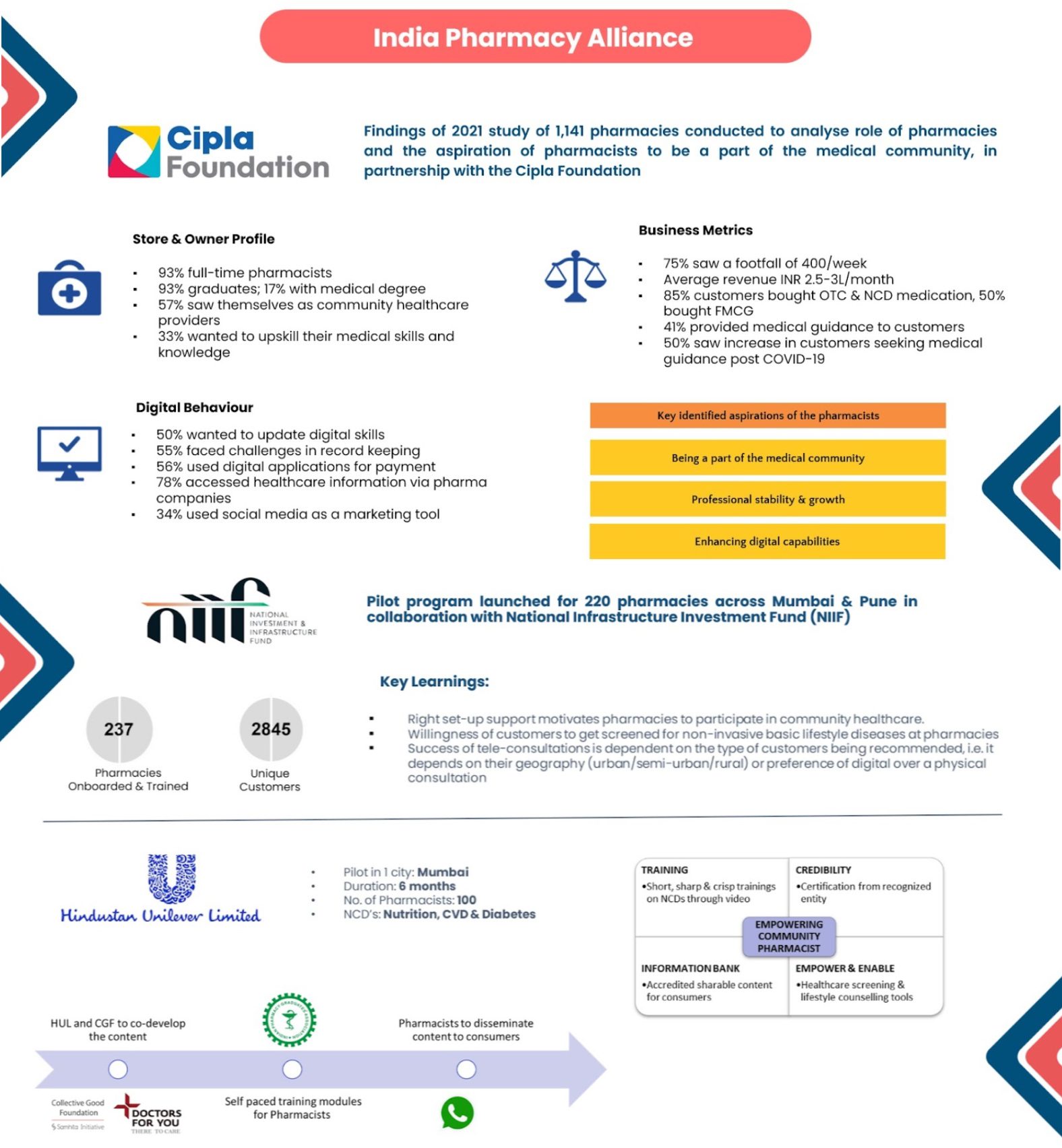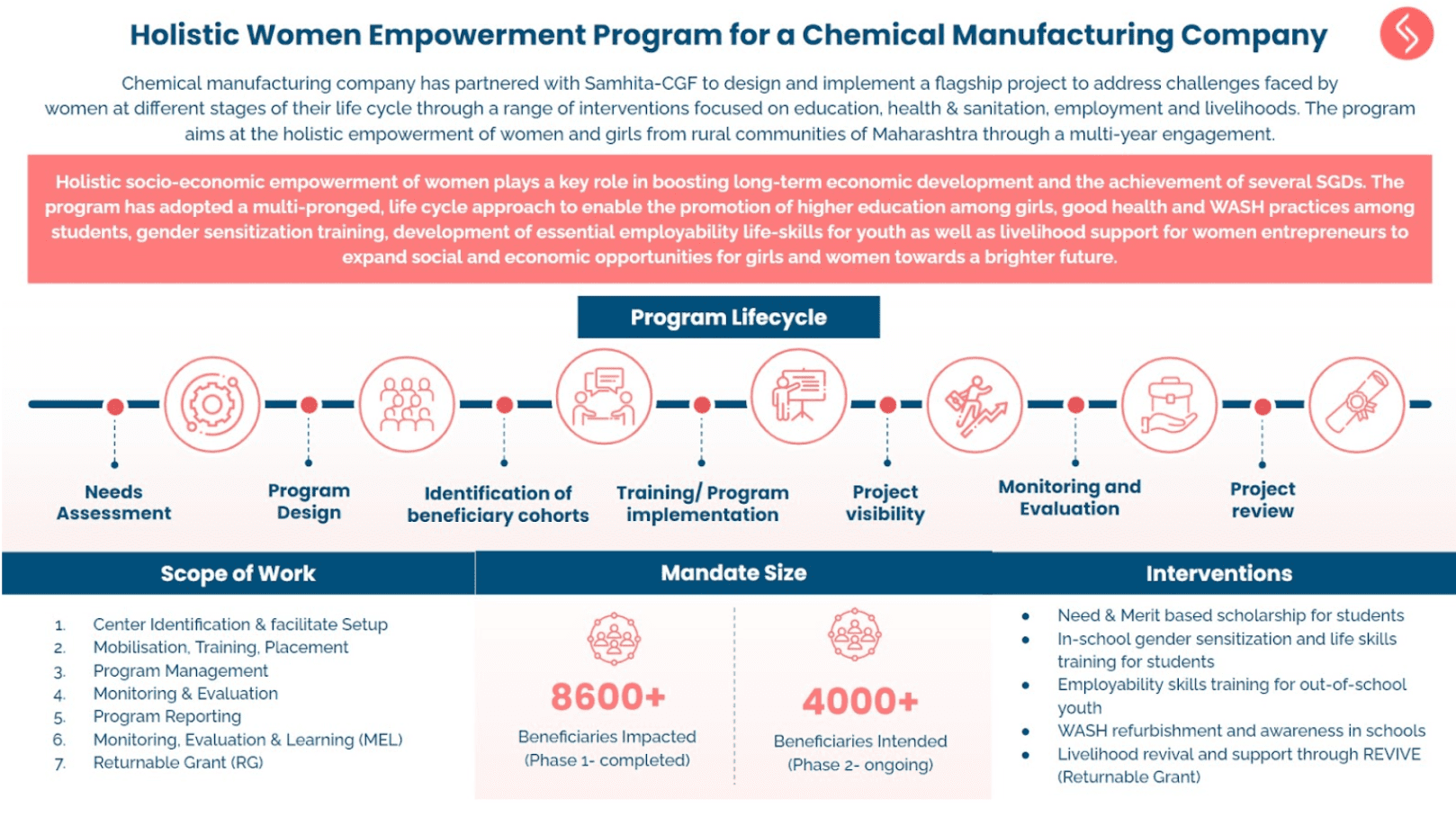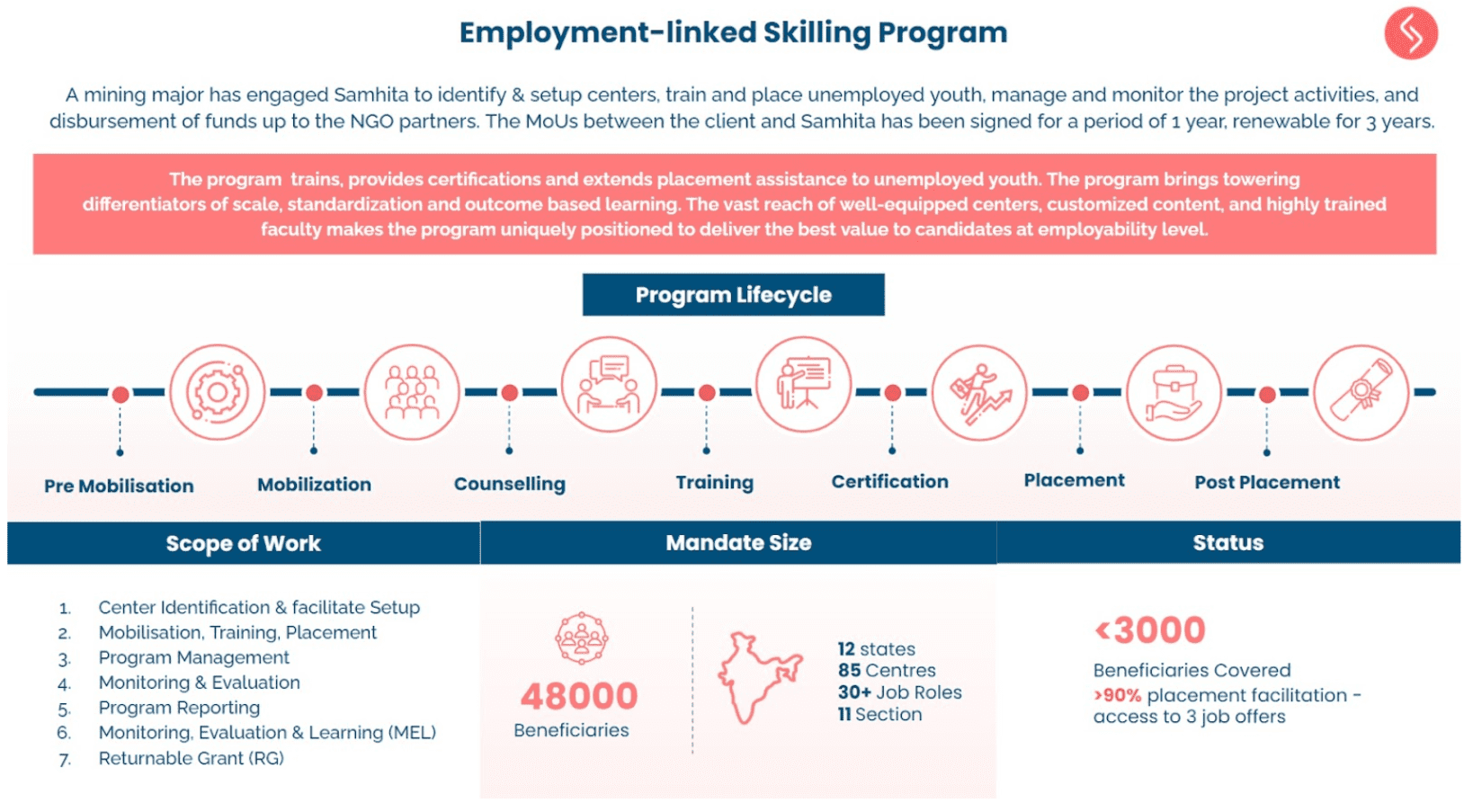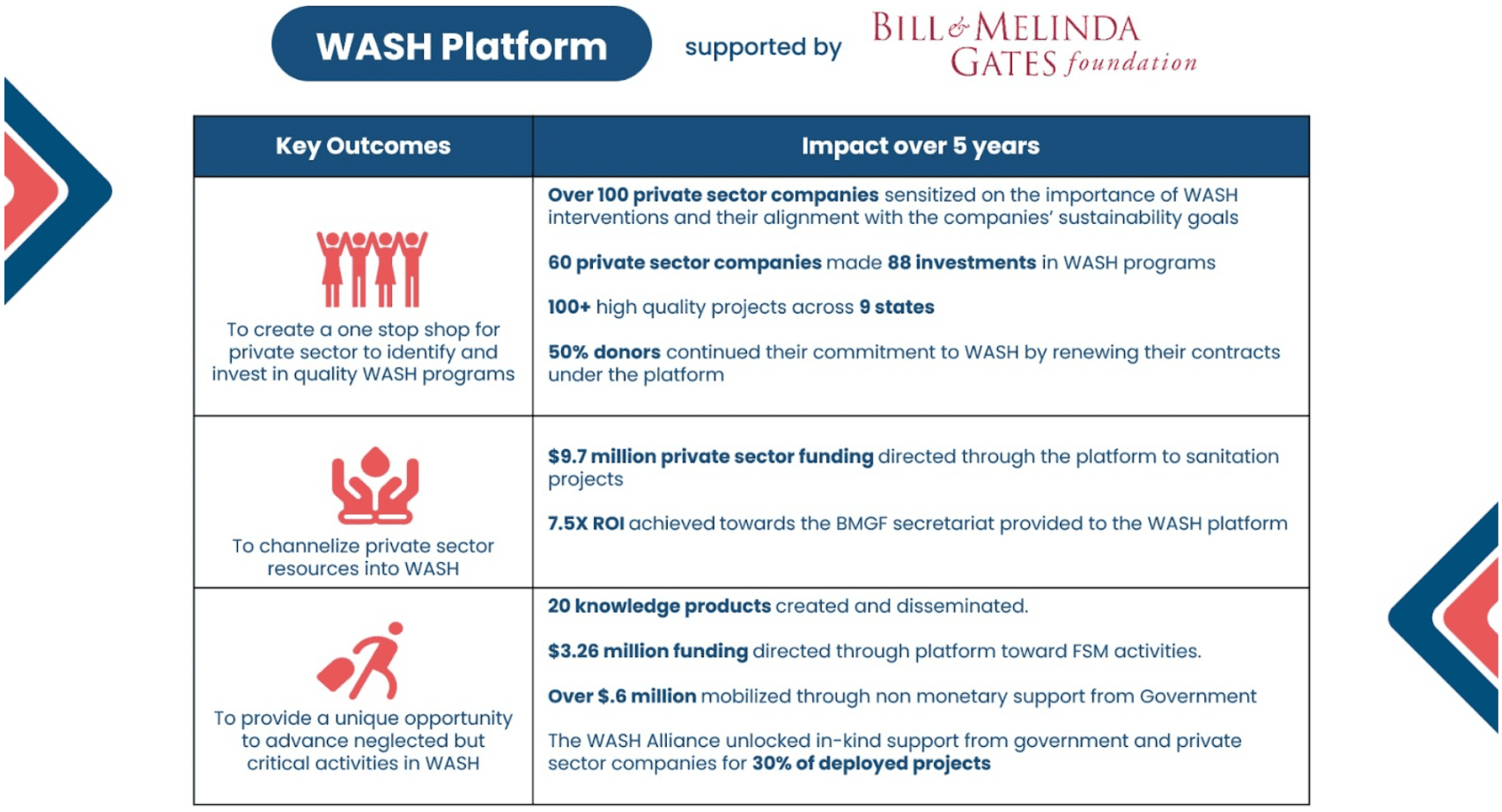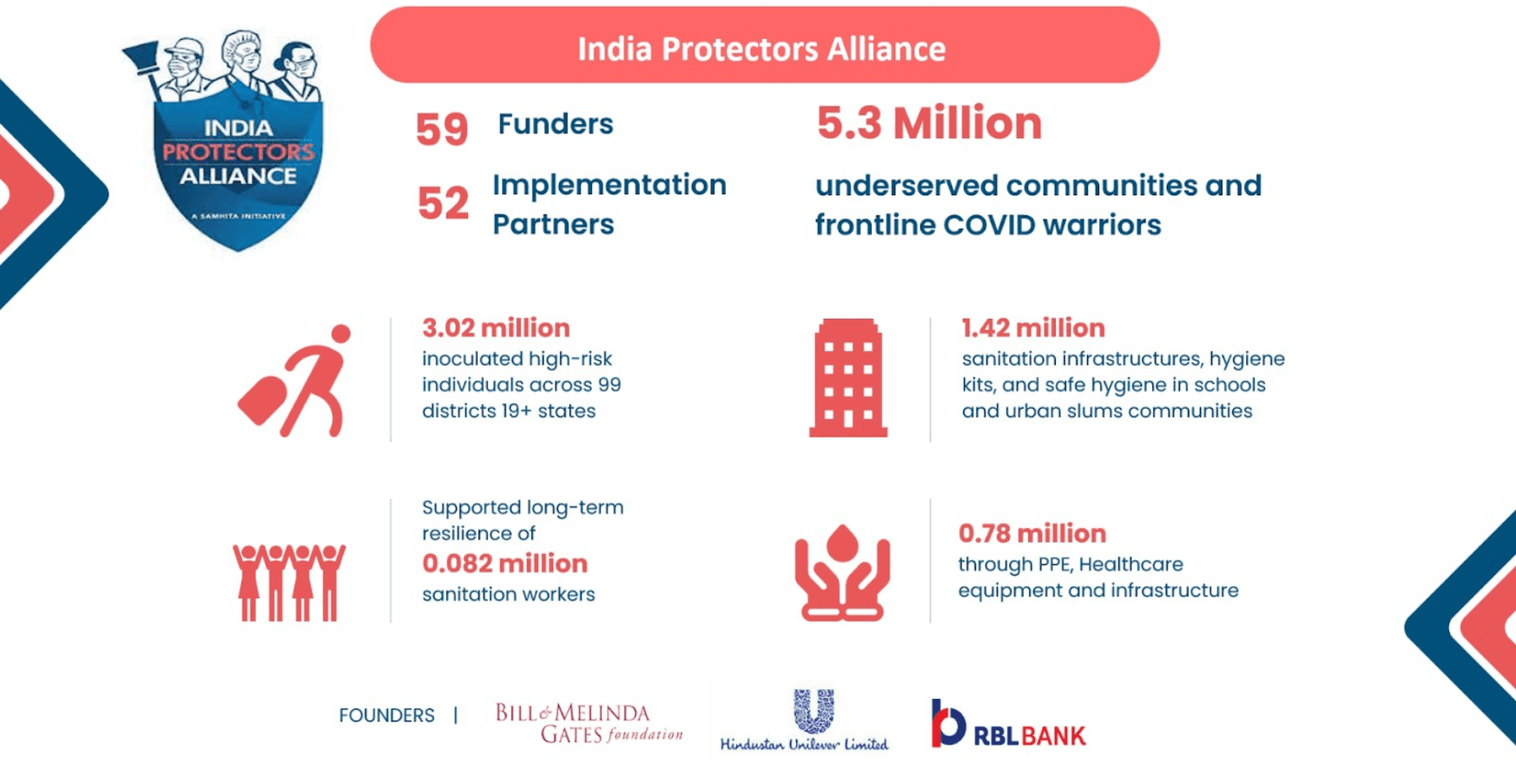After, USA and China, India has the largest incubator and accelerator ecosystem in the world. But few companies have sufficient information on this ecosystem to be able to invest in it.
Samhita, and Villgro, supported by GIZ are addressing this information asymmetry and facilitating partnerships between companies and incubators and social enterprises(SEs).
The traditional model of CSR involves selecting an NGO working in an area of your interest (livelihoods, education, etc.) and funding them for a specific project, say, training 500 women artisans, or setting up a computer lab in a school.
But, the smart CSR managers of today are asking harder questions of this model.
What happened to those women artisans after the training was completed? Who buys their products and connects them to consumers? Is the model sustainable? What do children actually learn from the computer lab? Who teaches them? What content is available? Who maintains the computers and the lab to ensure it continues to deliver value?
One way to find these answers is to partner with social enterprises or for-profit entities who use market-based approaches to solve social problems.
The next logical question is : “Is it legal?” Does the Companies Act permit CSR funding to be used for support for-profit social enterprises?
The answer is a resounding Yes! Under Section (vii) of the Companies Act, CSR funds can be used to support Government-approved Technology Business Incubators (TBIs) located within academic institutions. A subsequent clarification also specifies that any TBI can be supported using CSR funds.
So, why should your company invest its CSR in social enterprises and incubators?
Innovation: Social enterprises, by definition, use innovative approaches to solving social problems. From the Biosense non-invasive anemia measurement device to the Adhyayan school transformation rubric, these enterprise use fundamental new ways of approaching social challenges, with significantly better outcomes.
More resources:Because social enterprises attract financing from impact investors, they have significantly more resources than traditional non-profits or NGOs. This allows them to leverage your CSR money for much greater impact.
Focus on talent:More resources and a for-profit structure means the ability to pay better salaries, and attract the talent they want. They can also offer stock options. We’ve see our social entrepreneurs capitalize on the start-up craze to attract experienced and seasoned talent, leading to significantly better execution.
Sustainability:Because social enterprises have a revenue model, they have high potential for sustainability. Which means that even after your CSR funding project finishes, their solution and service continues to live on.
Scale: The combination of a sustainable revenue model, more resources and focus on talent means that these organizations have the potential for scale far greater than the traditional NGO/Non-profit model. Which means that the small amount of CSR funding you provided at the beginning is leveraged multi-fold, to achieve outsized, national-level scale and impact.
How should your company engage with social enterprises through a TBI ?
From my experience working with many corporates and social enterprises, I believe there are five dimensions to consider while designing your engagement.
Money: Social enterprises need money, especially at the early stages when they’re being incubated by a TBI, to hire the initial employees, develop their product, test-market their solution, etc.
You could fund a TBI to fund a social enterprise in four different ways:
- Select a specific company from their portfolio that aligns with your CSR priorities – for example, agriculture or education. Your MOU with the TBI then specifies which social enterprise the funding should go to, and perhaps also what that funding should be used for and the milestones that should be achieved. Most CSRs currently work in this model.
- Select together from a pipeline that the TBI surfaces around your CSR theme areas — you’re leveraging the TBI’s network and processes for selection and diligence, and also having a say in the process by participating in their “Investment Committee.” This way you can fund new ideas, and yet have a say in the process. Marico worked with Villgro to find and select a social enterprise working in the field of diabetes, their focus area.
- Provide an open grant and leave it to the TBI to select and incubate enterprises within your theme areas. This stage implies you have developed trust in the TBI’s selection processes, and can depend on them to find good enterprises that fit your mandate. A corporate recently engaged Villgro to find and support skill training social enterprises, which is their CSR theme area.
- Fund the TBI’s program costs like incubation staff, mentors, knowledge building sessions, etc., and not fund incubatees directly. This often allows the TBI the flexibility to provide the much-needed handholding that plays an equally important part in the incubation process. A large IT multi-national in Bangalore funded IIT Bombay’s incubator for the costs of running an accelerator program.
Mentoring: Your corporate has several experienced, seasoned, senior executives, and social enterprises are often founded by relatively inexperienced founders who are trying to do something radical to solve a social problem. In our experience, mentoring from senior executives is at least as valuable as the funding we provide our incubatees. By engaging your senior management in mentoring these entrepreneurs, you’re giving them a chance to “give back” while adding significant value to the incubatee. Mphasis senior management were closely involved with one of Villgro’s incubatees, providing mentoring and guidance.
Expertise: You may have technical experts in your organization who can add great value to social enterprises by giving them advice from time to time. For example, GE’s 5.38 accelerator for med-tech social entrepreneurs provides access to technical experts within GE Healthcare. That sort of expertise is hard to come by, or well-nigh impossible to access, and can significantly assist a med-tech social enterprise in product development. Your employees also benefit by using their expertise for social good, and it enhances their sense of goodwill for their employer, because they can witness first hand the social impact of their company’s CSR program.
Facilities: A social enterprise, especially one working on an innovative new physical product like a medical device, doesn’t have the capital required to invest in labs, fabrication facilities, etc. However, it does need access to these facilities for product development. Corporates have these assets, and they are generally under-utilitized. By creating a way by which social enterprises can leverage these facilities, you could provide they a valuable and timely resource that reduces the cost, improves the quality, and cuts the time of product development.
Go to market: Lastly, social enterprises need partnerships to take their products to market. Established distribution channels are often out of their reach, because of their innovative product, lack of market demand, and low marketing resources. A corporate that can distribute a social enterprise’s product through its own distribution channels will provide that social enterprise significantly value. A large agri conglomerate’s recent tie-up with one of Villgro’s agriculture social enterprises is an example of how this could work.
In conclusion, we’re seeing the shift from tactical, project-based CSR, to strategic, programmatic CSR. By adding social enterprise support to your CSR program, and engaging corporate resources such as senior management mentors, technical experts, leveraging facilities and using distribution channels to make the support strategic, you can maximize your impact and effectiveness.
Interested? GIZ, Villgro and Samhita are working to help Corporates find TBIs and engage with them. So, if you are a corporate or an incubator, looking to explore new horizons of partnerships, get in touch.
